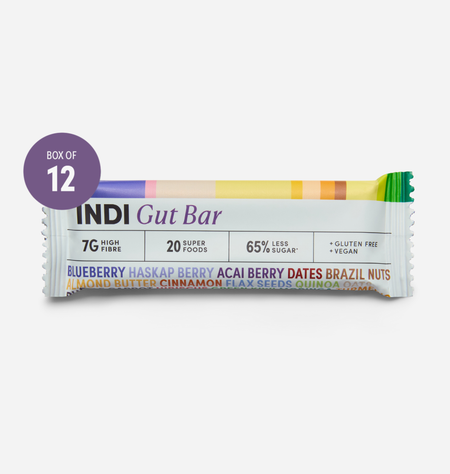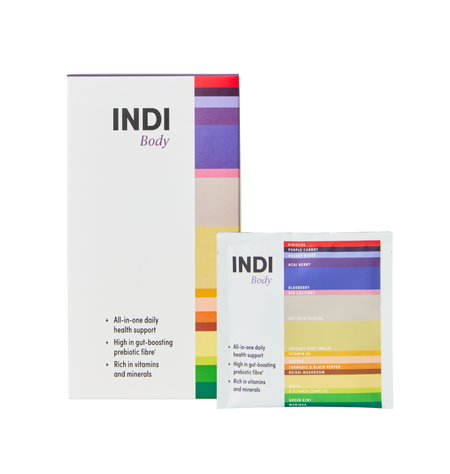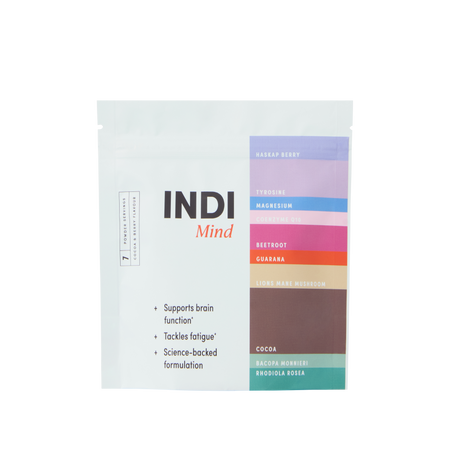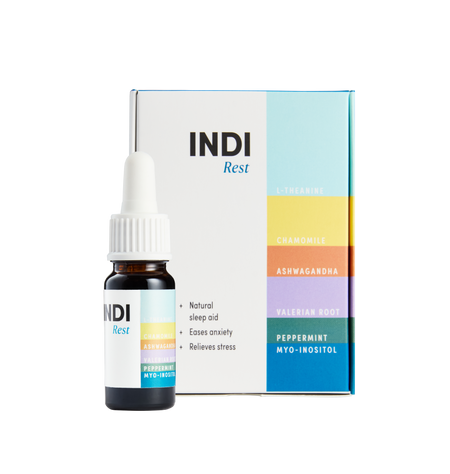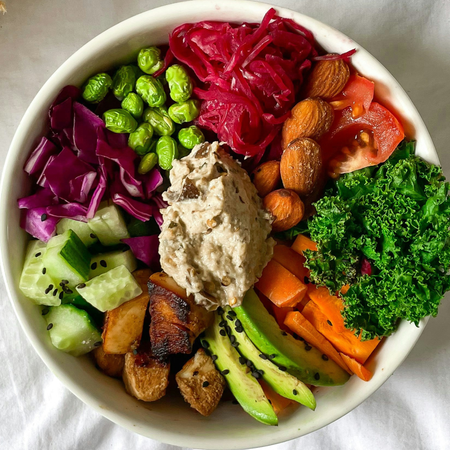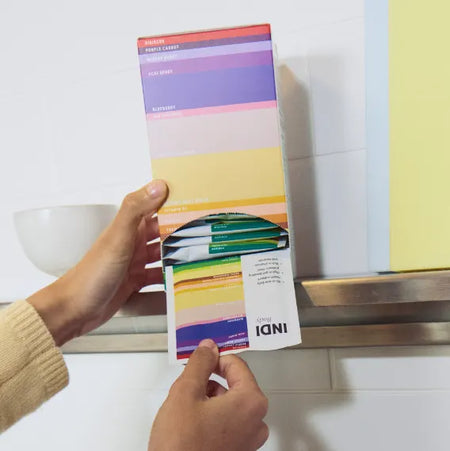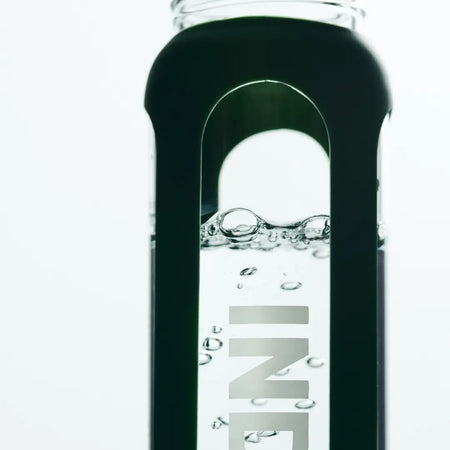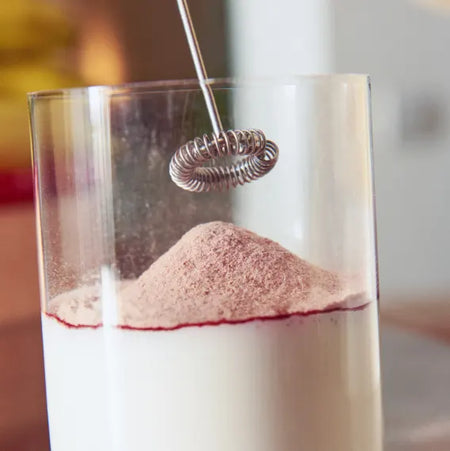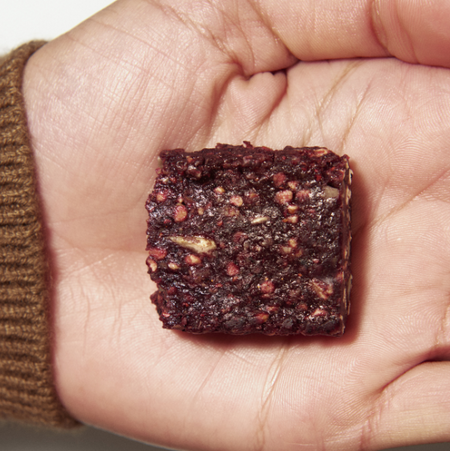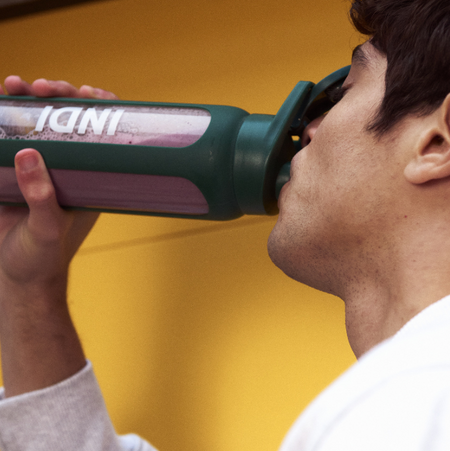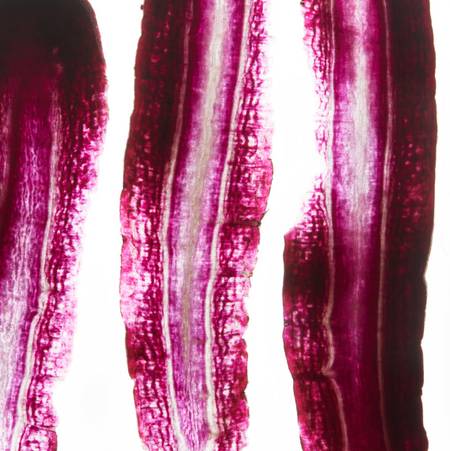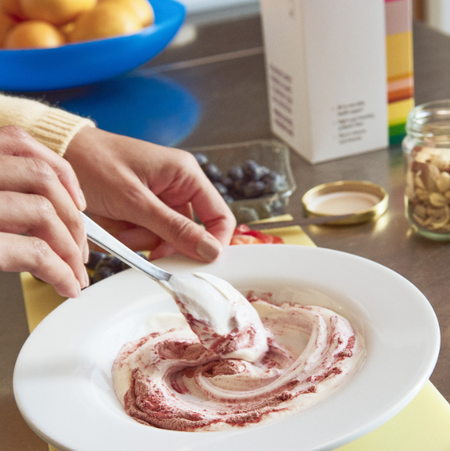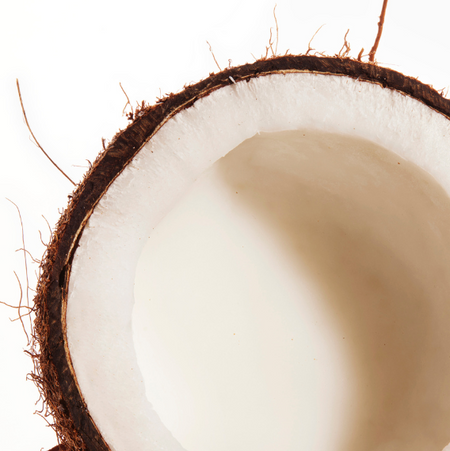Talia Engel is INDI’s in-house Registered Nutritionist. She has a Nutrition master’s degree from King’s College London and is a member of the Association for Nutrition.
Should you worry about emulsifiers?
WHAT ARE EMULSIFIERS AND WHY ARE THEY USED?
Emulsifiers are additives that help ingredients mix together when they normally wouldn’t. Think of oil and water: on their own, they separate. Add an emulsifier, and suddenly you get a smooth, blended product.
That’s why peanut butters with emulsifiers look silky and well-mixed, while natural peanut butter often has a layer of oil floating on top (which is totally normal—just give it a stir).
Food manufacturers love emulsifiers because they improve texture and extend shelf life. That’s why they’re so common in ultra-processed foods (UPFs) (products that typically contain ingredients you wouldn’t keep in your own kitchen).
WHERE ARE THEY USED?
The European Food Safety Authority (EFSA) lists more than 60 emulsifiers as safe for use. Some of the most common include:
- Lecithins (E322)
- Carrageenan (E407)
- Guar gum (E412)
- Xanthan gum (E415)
- Celluloses (E460–E469)
- Mono- and diglycerides of fatty acids (E471)
They can be either natural (from plants or animals) or synthetic. You’ll often find them in:
- Salad dressings
- Packaged bread
- Sliced cheese and meats
- Pasta sauces
- Ice cream
- Nut butters
- Chocolate and sweets
- Protein powders
Not every product contains them though. One pasta sauce might be made entirely from whole ingredients, while another may include several emulsifiers. Reading labels helps you spot the difference.
WHAT DOES THE RESEARCH SAY?
Research into emulsifiers is still emerging. Most are considered safe, but some raise concerns:
- Carboxymethyl cellulose and polysorbate 80 have been linked to changes in the gut microbiome, including a reduction in beneficial bacteria.
- Early studies suggest emulsifiers may increase gut permeability (“leaky gut”), allowing unwanted compounds to pass into the bloodstream and trigger low-grade inflammation.
- A recent clinical trial showed that some people with Crohn’s disease experienced digestive symptoms and inflammation when consuming emulsifiers.
While these findings are important, the evidence isn’t strong enough to say everyone should avoid emulsifiers completely. More research is needed, especially in humans.
SHOULD YOU BE CONCERNED?
Avoiding emulsifiers altogether is unrealistic and unnecessary. What matters most is your overall dietary pattern.
At INDI, we believe in addition, not restriction. A simple rule of thumb:
Focus on adding a wider variety of colourful fruits, vegetables, legumes, nuts, seeds, whole grains, herbs and spices to your meals. By doing so, you’ll naturally crowd out ultra-processed foods that often contain additives.
DO INDI USE EMULSIFIERS?
No. At INDI, we don’t use emulsifiers in any of our products. As previously said, avoiding emulsifiers is hard. That’s why we wanted to provide more options without them.
Avoiding emulsifiers is very important to us, because when we researched competitor bars, we were surprised at how many popular snack bars—even those marketed as “healthy”—included emulsifiers or other additives. We wanted to do things differently, creating a bar that’s as close to whole food as possible.
Gut Bars
Raw fruit superfood snack
from £20.00
A delicious, chewy, nutty, daily hit of gut-boosting greatness. 12x 35g per box.
